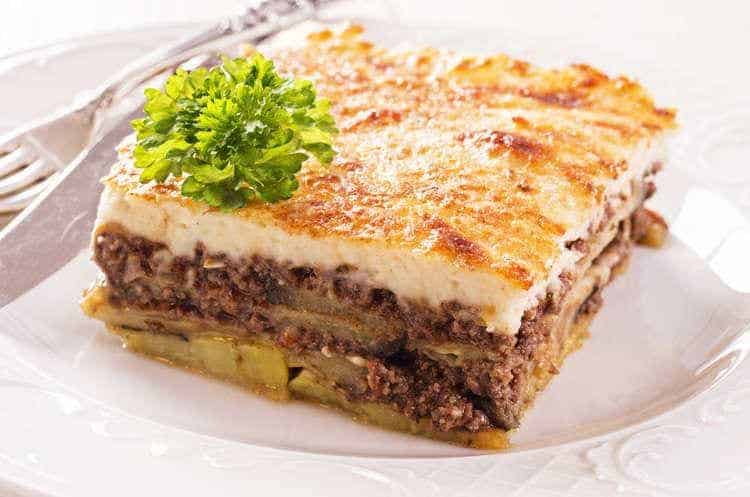The iconic and emblematic dish of Greek cuisine, the moussaka, has been embroiled in the climate change debate, threatening our gastronomic future, should the fanatics take hold!

In an article titled "Top 10 European dishes with the highest carbon footprints", Forbes India explored dishes from the old continent that could be guilty of contributing adversely in the fight against climate change. The criterion: Their carbon footprint.
According to the article "preparing moussaka is as carbon intensive as driving 47 kilometres, the study reveals. And simply because it contains beef. In fact, cattle farming is responsible for 15% of greenhouse gas emissions, according to FAO figures. So it's hardly surprising that the recipes at the top of this ranking are all beef-based."
Research has found that the number one culprit is beef-heavy Bulgarian moussaka which tops the list of Europe's most CO2-intensive culinary specialties with researchers listing Greek Moussaka at number 7 with 2,450 grams of CO2 equivalent, followed by British Fish and Chips, Irish Coddle and finaly Spanish Fideua at number 10.
Top 10 European dishes with the highest carbon footprints (in grams of CO2 equivalent):
1. Bulgarian moussaka (11,971)
2. Belgian stoofvlees (11,202)
3. German goulash (8,055)
4. Portuguese francesinha (6,260)
5. Latvian cutlets (3,877)
6. Finnish makaronilaatikko (a macaroni casserole) (2,552)
7. Greek moussaka (2,450)
8. British fish and chips (2,021)
9. Irish coddle (1,487)
10. Spanish fideua (1,320)
